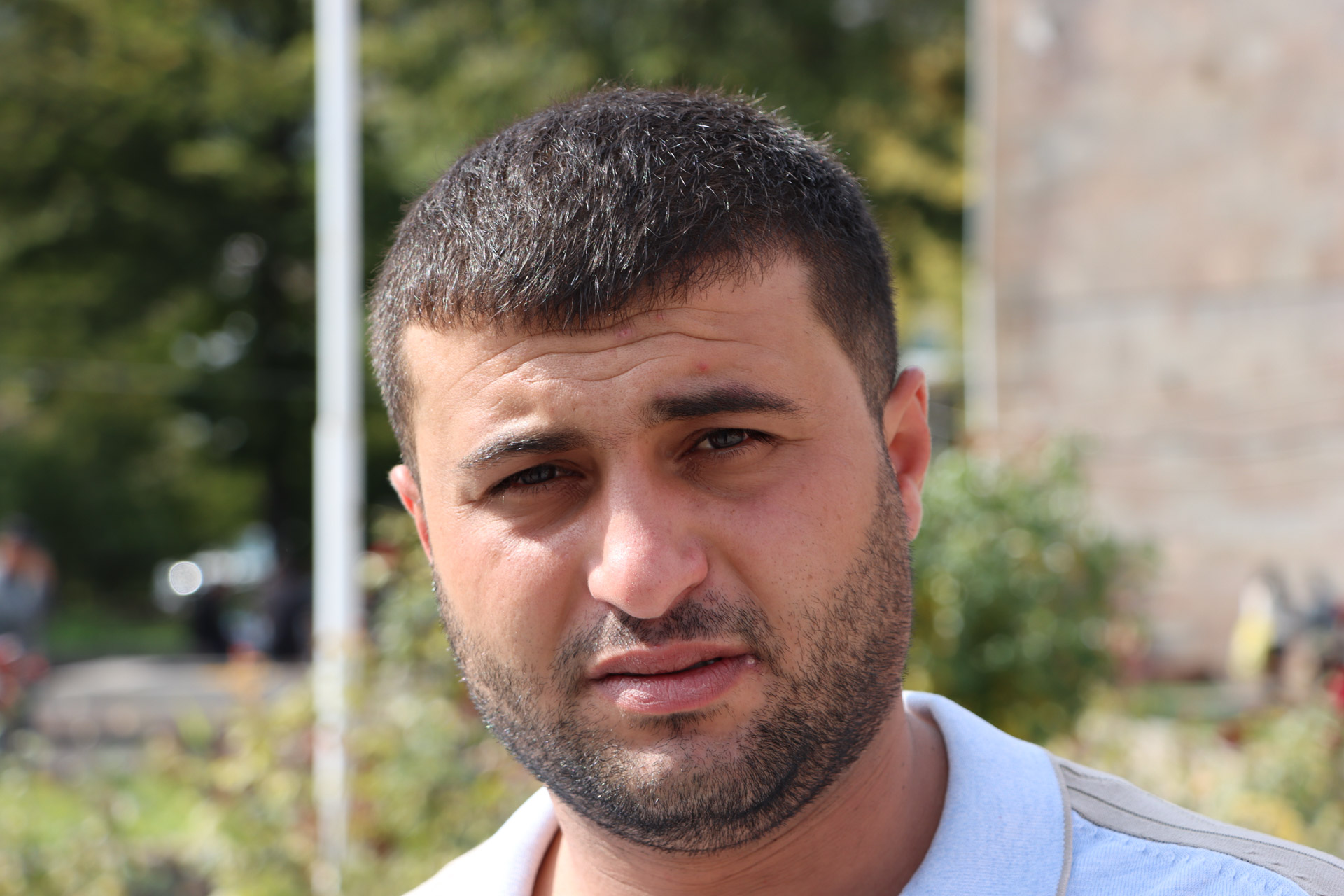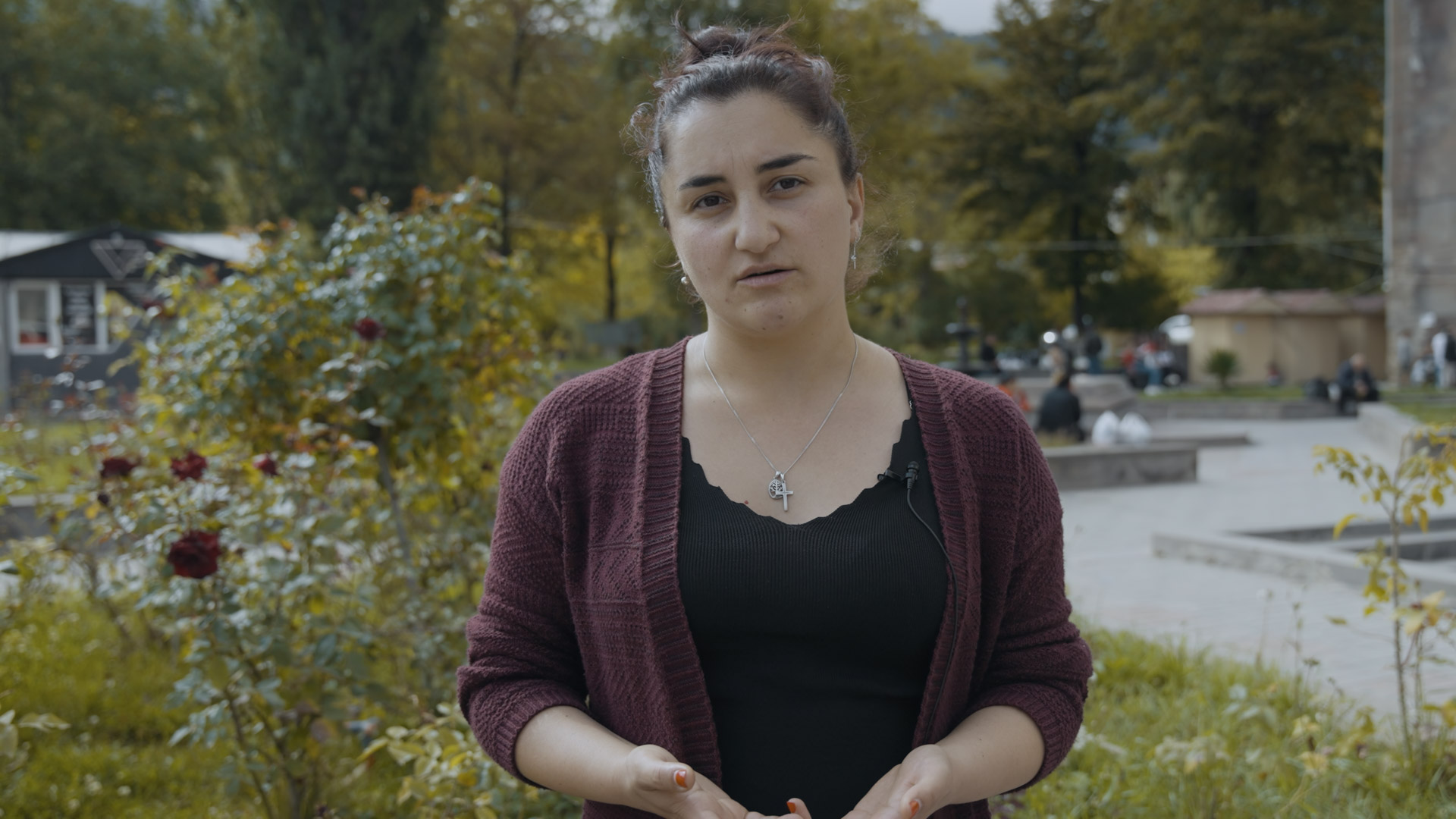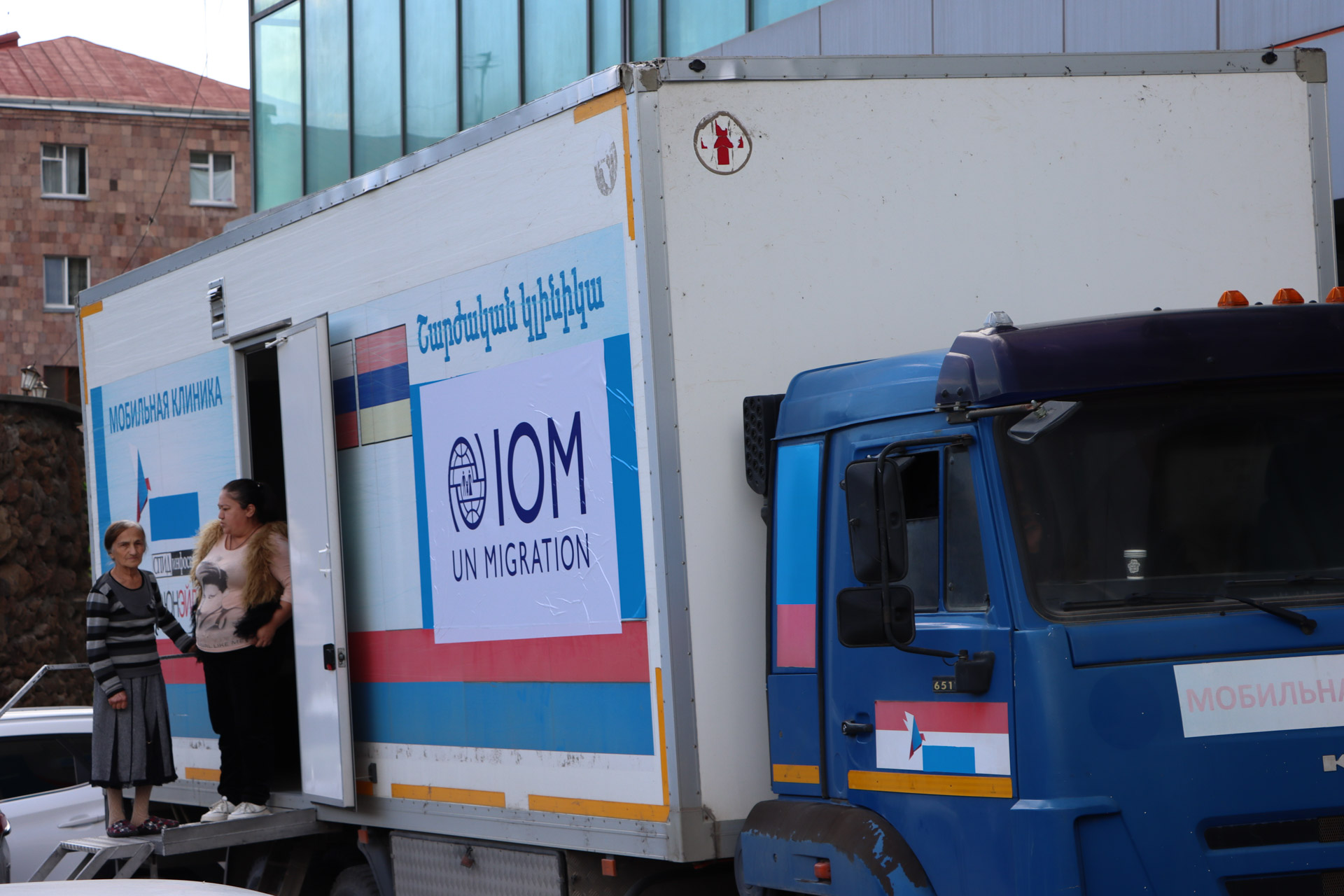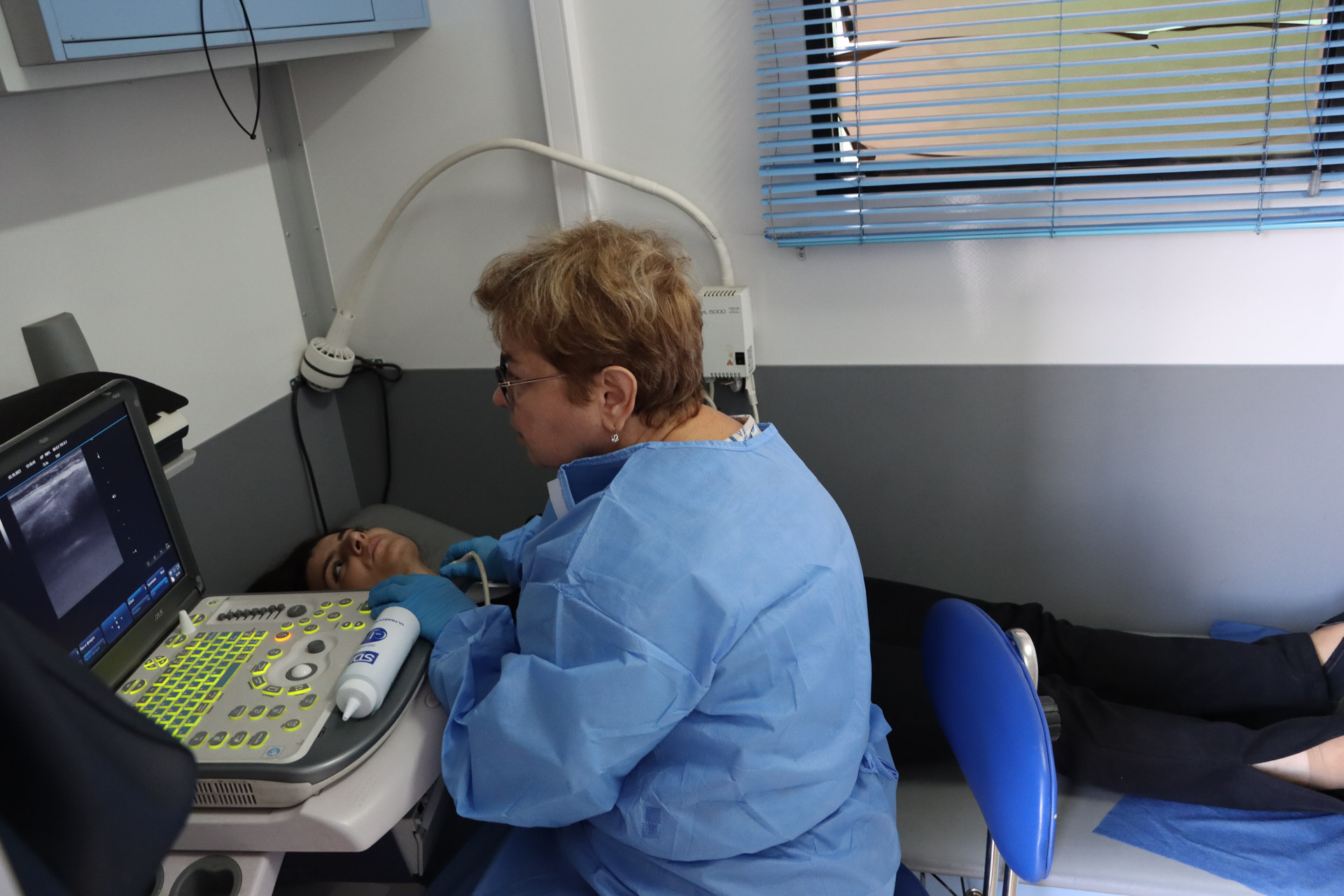Goris, 11 October 2023 – Goris, population 20,000, is a picture-postcard town, sitting in a bowl in the high mountains of southern of Armenia. It’s 25 kilometres to the border with Azerbaijan, to the Lachin corridor.
During the last week in September, after a military operation, over 100,000 ethnic Armenians rushed to Goris, necessitating urgent humanitarian action by Armenia’s Government, UN agencies, NGOs and volunteers.
Tented halls, mobile kitchens, portable toilets, clothing banks, water stations, clinics, play areas, and a registration point sprung up overnight, avoiding a catastrophe.
By the first Monday of October, Goris was back to its quiet self. Everyone had found some form of temporary accommodation. Some 40,000 were settled in hotels and community facilities by the government, while the remainder were taken in by family, friends, and volunteers organized via social media campaigns.
Problem solved?
In fact, no. Armenia now faces the massive challenge of integrating these new arrivals. “They will need homes, schools, hospitals, jobs – all the things that we take for granted,” said Manfred Profazi, IOM’s regional director for Southeastern Europe, Eastern Europe and Central Asia.
Profazi was speaking after a three-day visit to Armenia, where he saw the first of several mobile health clinics that IOM is opening across the country, to cater for the physical – and mental – health needs of the new arrivals.
“These are not people who have made a quick and comfortable passage,” Profazi underlined. “These are people who have lived through active and frozen conflict for 30 years, who have lost their homes, their family memories and their communities. They are traumatized and exhausted, with children and the elderly in particularly bad shape. We are rapidly expanding our help to them, especially as winter is fast approaching.”
Voices from Those Who Fled

Andranik Harutyunyan. Photo: IOM/Joe Lowry
Andranik Harutyunyan: The same day as they started striking our village, our whole community moved into to a cave. When it was time for all of us to leave the village, no one took anything from Berdadzor. Some people were able to get their family out by car, at least. But some were not.
If anyone can help anyone in our community with a place to live, the rest will be taken care of by us. We all are working families. We all will work to provide for our families.

Edgar Yedigaryan. Photo: IOM/Joe Lowry
Edgar Yedigaryan: I am engaged, and my fiancée is currently displaced in Hadrut region. We had decided to get married, but unfortunately this tragedy happened. But again, we are not breaking apart, we are not falling into despair. We will be able to overcome this and stand up again.
In terms of finding a job, if there’s no vacancy in state institutions, we will definitely do agriculture, farming, and take care of our family. We are working folk; we all can create something.

Svetlana Lazaryan. Photo: IOM/Joe Lowry
Svetlana Lazaryan: (Was previously living in Armenia) When I decided to return back to Karabakh, the woman who I was living with asked me a question: ‘Where are you going? You have no residence, no possessions. I said, ‘I don’t know where, but I’m needed there.’
I don’t know… The call of the heart… The call of blood. My parents are buried there. I have left my brother’s grave. I have left my father’s grave.
We understand our own pain. We must support each other and not wait for some external assistance. Why does no one want to hear and see us, understand our pain?

Marianna Grigoryan. Photo: Davit Gyumishyan
Marianna Grigoryan: My mum and grandma fled in the 1990s and we don’t have a house. I am unaware of the concept of owning a house. And to be honest, I don’t even want to know what that is. Because I have seen how people build up those walls, put bricks on each other, make a home to live in and then be obliged to destroy what they have worked on for 30, 20, 15 years, in one second.
On the 19th, when that massive war situation started, people flowed to Stepanakert. Under bombardment and shooting, we started running from basement to basement. We figured out the amount of people per place and started quickly collecting blankets, shoes, everything we had. What’s happening here (aid distributions), we were doing the same things under bombing.

Ophelia Aghajanyan. Photo: IOM/Joe Lowry
Ophelia Aghajanyan: We are pensioners. My husband, who used to be a soldier, is a disabled man. My son as well. My sister’s only child was brought here in a closed coffin. We buried a lot of our relatives. I have left my holy dead, and I don’t blame myself; I have brought a handful of soil with me. What are we going to do? I don’t know. Who cares about pensioners?
Each of the IOM Mobile Clinics has a psychiatrist working alongside the general practitioners (GPs). While the GPs provide primary health care, diagnosis and referral, the psychologists are there to identify and assist with reversing the effects of the trauma suffered by many. They will also help people make sense of their current situation and try to get them to move into a future free of unmanageable stress.
Nune Asatryan, project coordinator at IOM Armenia explained that the mobile health clinics will play an important part to bring health services to vulnerable populations, especially those in remote, rural communities. “The psychologists working in the mobile teams will support refugees affected by multiple losses who are grieving for people, places and life left behind. The psychological therapy can improve their general psychological well-being helping them deal more effectively with personal challenges and reduce their distress and suffering.”
IOM is part of the interagency group currently elaborating the overall response plan, under the lead of the Armenian Government.

Regional Director Manfred Profazi speaks to staff at the IOM mobile health clinic in Goris, Armenia. Photo: IOM/Joe Lowry

Patients waiting to see medical staff at IOM’s newly established mobile clinic in Goris, Armenia. Photo: IOM/Joe Lowry
“We will be involved in several sectors,” according to Head of Office Ilona Ter Minasyan. “Apart from the vital work of the mobile clinics, we also foresee a role for IOM in shelter, early recovery and protection. Many women will be vulnerable to trafficking for sexual or other purposes, and also to gender-based violence. Globally, we have significant expertise on how to sensitize populations which will be vital in this context.”
IOM’s support is intended to be long-lasting. Durable solutions alongside humanitarian support. But essentially, it’s about proximity, about delivery of the help that people need, where they need it.
People like Gayane, who last saw a doctor when she gave birth to her second daughter, six years ago. “I saw the clinic here this morning but thought I’m OK, it’s not for me.” An IOM outreach worker offered to look after her two daughters for a few minutes while she saw the doctor.

An IOM doctor examines a patient at the newly established mobile health clinic in Goris, Armenia. Photo: IOM/Joe Lowry
“They found I have high blood pressure and need medicine and regular follow-up,” she smiled, leaving the clinic.
Thousands more Gayanes will be assisted over the coming months, and thousands more will get other help from IOM. Right where they need it, and right when they need it.
Written by Joe Lowry, Senior Media and Communication Officer, IOM Regional Office for South-Eastern Europe, Eastern Europe and Central Asia



